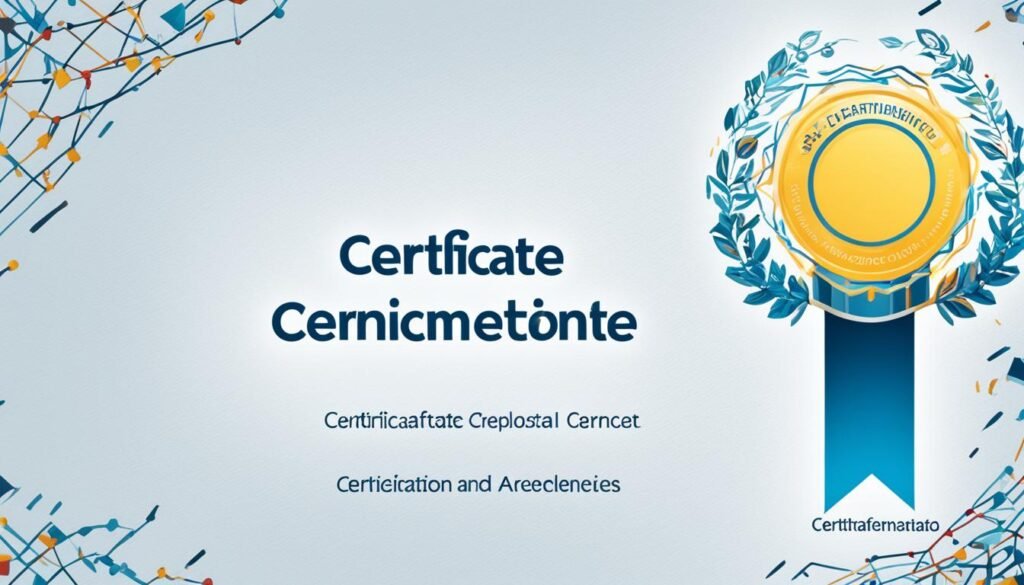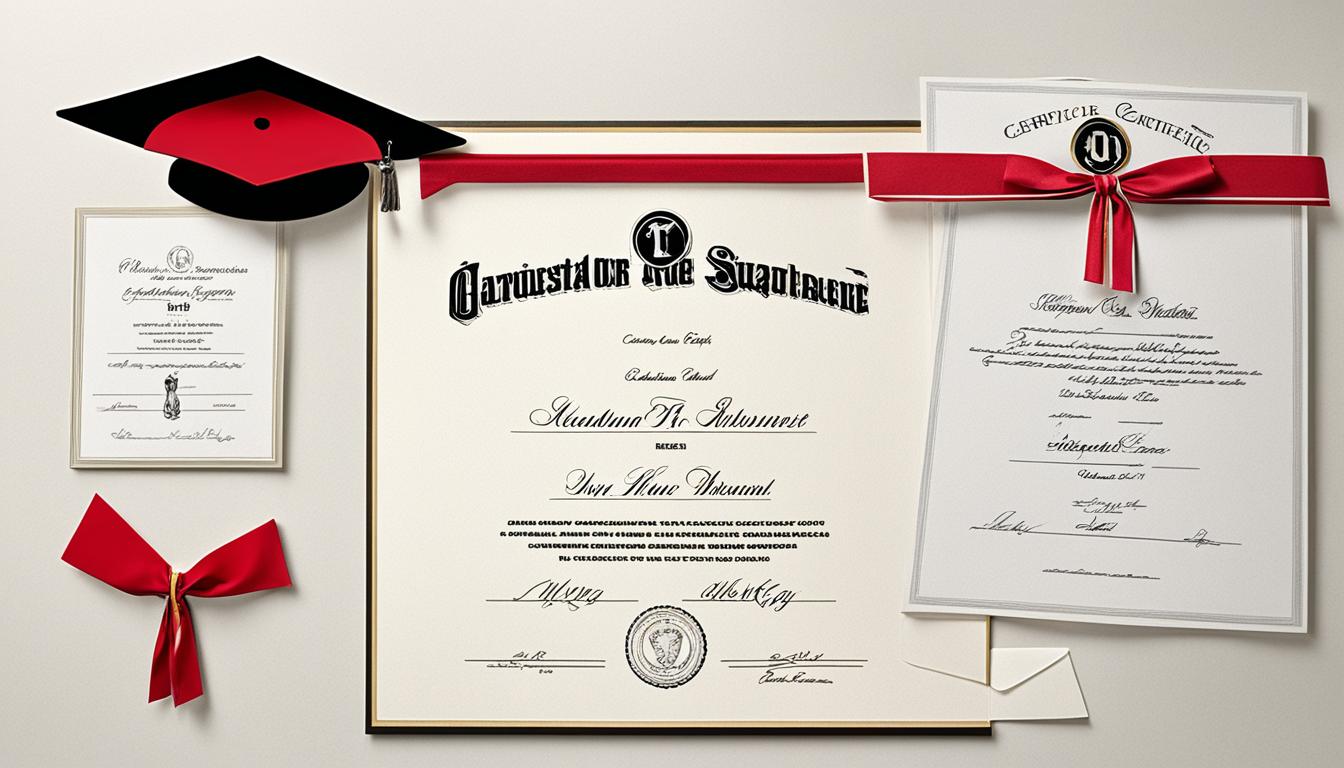The key differences between a Master’s Degree and a Certificate can greatly impact your career prospects. Understanding these differences will help you make an informed decision about the best path for your educational and professional goals. Let’s explore the distinctions between these two options.
Key Takeaways:
- A Master’s Degree provides advanced education and in-depth knowledge in a specific field.
- A Certificate offers focused training and a specific skillset for career advancement.
- Consider your career goals and the specific requirements of your desired field when choosing between the two.
- Master’s Degrees generally require more time and commitment than Certificates.
- Evaluate the potential return on investment and market value of each credential.
What is a Master’s Degree?
A Master’s Degree is an advanced level of education that offers students the opportunity to pursue academic specialization and gain in-depth knowledge in a specific field. The pursuit of a Master’s Degree signifies a commitment to advanced education and a desire to excel in a chosen area of study.
Master’s Degree programs typically require one to two years of full-time study, although the duration may vary depending on the specific program and institution. During this time, students engage in rigorous coursework, research-based projects, and practical applications of their knowledge.
One of the distinguishing features of a Master’s Degree is the emphasis on research. Through research-based assignments, students develop critical thinking skills and gain valuable insights into their chosen subject area. This research component allows students to contribute to the academic community and deepens their understanding of their field.

The Benefits of a Master’s Degree
A Master’s Degree equips individuals with advanced skills and specialized knowledge, making them highly competitive in their respective fields. Graduates with a Master’s Degree often have greater job prospects and higher earning potential compared to those with only a bachelor’s degree.
Furthermore, a Master’s Degree offers an opportunity for networking and professional growth. Students have the chance to collaborate with experts in their field, work on real-world projects, and gain practical experience through internships or co-op programs.
In summary, a Master’s Degree provides advanced education, academic specialization, research-based learning, and in-depth knowledge in a specific area of study. It is a significant milestone in one’s educational journey and a valuable asset for individuals seeking to excel in their chosen profession.
What is a Certificate?
When it comes to advancing your career, acquiring a certificate can be a strategic move. Unlike a traditional Master’s Degree, a certificate offers focused training that equips you with a specific skillset tailored to your desired field. These programs are designed to provide individuals with the knowledge and expertise needed to excel in their chosen profession.
A certificate program typically spans from a few months to a year, making it a shorter and more streamlined option compared to a Master’s Degree. This condensed timeframe allows you to acquire the necessary skills efficiently, providing a practical pathway for career advancement.
Certificates are valuable for individuals who are looking for a targeted approach to learning, enhancing their existing knowledge, or developing new skills. Whether you are aiming to break into a new industry or seeking to upskill within your current profession, a certificate can provide the specific skillset sought after by employers.
By acquiring a certificate in your field of interest, you demonstrate your commitment to professional development and showcase your expertise to potential employers. This specialized training can open doors to new career opportunities and set you apart in a competitive job market.

Choosing the Right Path for You
When it comes to furthering your education, choosing the right path is crucial for achieving your career goals. Whether you opt for a Master’s Degree or a Certificate, it’s essential to consider the decision-making process in order to make an informed choice.
Firstly, evaluate your career goals and the specific requirements of your desired field. Consider the level of expertise and depth of knowledge you need to achieve those goals. A Master’s Degree offers a comprehensive academic specialization and research-based approach, providing in-depth knowledge in a specific area. On the other hand, a Certificate offers focused training, equipping you with a specific skillset that can enhance your career advancement.
Additionally, factor in practical considerations such as the time commitment and cost involved in pursuing each option. A Master’s Degree typically requires a longer duration of study, while a Certificate program can be completed within a shorter timeframe. Furthermore, weigh the potential return on investment for each option, considering the financial implications, future earning potential, and job prospects associated with your chosen path.
To make an informed decision, it’s essential to gather as much information as possible. Research the job market trends and speak with professionals in your field to understand the value placed on different credentials. By evaluating your career goals, considering the specific requirements of your desired field, and weighing practical factors, you can confidently choose the right educational path that aligns with your aspirations and sets you on the trajectory towards a successful future.


